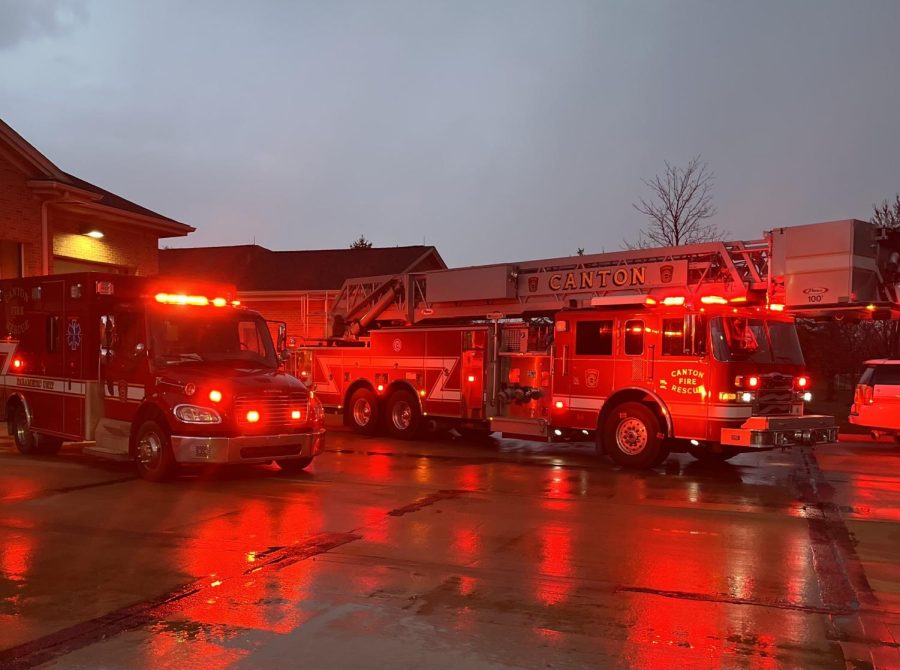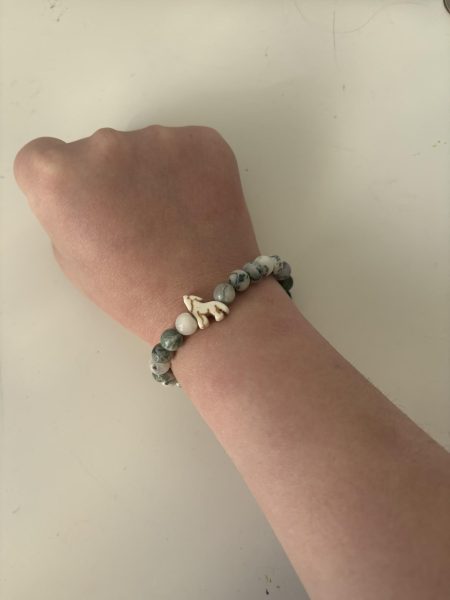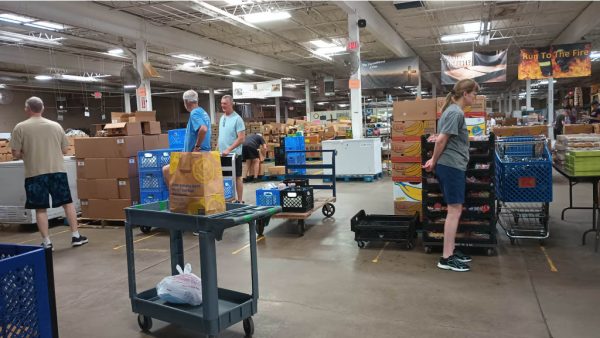First responders and the effects of the job they do
Canton fire truck and ambulance sit outside of the Canton station during rainy conditions. April 24, 2022.
To the general public, first responders have a job that looks like it would be fun the whole time. The truth is, there is a lot of stress that the jobs can carry, and these workers are struggling daily due to mental health issues that stem from the calls they go on.
According to Emily Laurence from Well and Good, an estimated 30% of first responders experience mental health disorders, including depression and Post-Traumatic Stress Disorder (PTSD), compared to 20% of the general public. First responders have a lot on their plate from their job.
Long days adding up causes these workers to develop stress, PTSD and other mental health issues from not being able to express how they feel.
Everyday first responders like firefighters and police officers deal with mental health issues. According to Conrad Weaver from NAMI, both firefighters and police officers are more likely to die by suicide than in the line of duty. It’s estimated that 18-24% of dispatchers and 35% of police officers suffer from PTSD, due to the amount of trauma they are put through within each day they work.
Having a way to speak on how they feel helps first responders with their struggles.
“I handle stress by having a support group,” said Richard Stone, Firefighter. “I can talk to my wife about it. Close friends here. We all have similar backgrounds and we all have similar personality traits where we always want to help each other, because we want to help other people too.”
First responders need to have a support system, which can simply be a debrief after every call to get rid of any negative thoughts. A support system would be very beneficial and help minimize mental health issues with workers.
“There’s a couple guys in this department that I feel have had a string of bad calls and the accumulation of those bad calls. It’s called cumulative PTSD. There’s guys that just can’t believe what they’ve seen, they just will not accept it,” says Stone.
Cumulative PTSD is a form of PTSD that is built up over time. Responders can get a string of multiple bad calls in a row, and it can really put pressure on them while working. Dealing with a 24 hour shift can bring some very stressful moments. First responders just need to be reassured that they weren’t the cause of anything that might have happened.
According to therapist Dian Grier, first responders gain PTSD, intrusive thoughts, avoidance and hyperarousal. They will start to feel isolated after experiencing the trauma they have witnessed and will not seek help most of the time. There isn’t a guaranteed way to get rid of all mental health problems with first responders. The best way for us to help is to reach out and give these workers a person to talk to.
Your donation will support the student journalists of Salem High School - MI. Your contribution will allow us to purchase equipment and cover our annual website hosting costs.








Tiffany Palm • May 27, 2022 at 8:52 am
Very well written Blake.